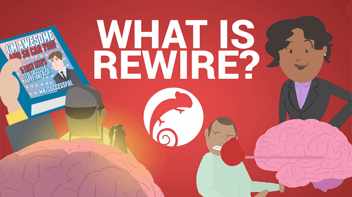
A few months ago, Steve Scanlon wrote a great article/horror story on rewiring our thinking in the context of airline travel. Today I want to write about commuting by car and how it actually shapes the way we think and act once we arrive at our destination. In a few months, someone will probably write about the subway or trains, and then we can have our planes, trains and automobiles trifecta. In the meantime, let’s rewire how we commute!
And commuting by car is such a strange thing. Strange that, on the one hand, it can be so boring and banal while we let our minds do nothing. And then suddenly something will happen that starts our heart racing, our blood boiling and our veins throbbing. It could be someone driving too aggressively — or too cautiously for that matter. It could be someone’s bumper sticker for that really horrible politician. You know the one I mean. The one that alternates between evil genius and unrepentant moron.
So strange that we yell and plot revenge fantasies and lose seconds and hours and days off of our lives for actions we’d release easily if they happened at the store or our kid’s school. So strange that something as simple and common as driving floods our brains and bodies with chemicals, thereby shaping the way we will think and act and work once we get to wherever we’re commuting to.
So, let’s rewire this. I’ve got three habits that will help transform your thinking as you drive. Further, these habits will put you in a growth mindset that will transform the way you approach your work once you arrive at your destination.
1. Connect to your sense of place
We tend to view where we’re coming from as a place, and where we’re going as a place, but not the in-between. This leads us to devalue this in-between time and space, and thus not be mindful of it and not use it for whatever value it could give us. But your car is a place. And the road you’re on is a place. And the particular stretch of road you’re on is a place different from other places. Sure, some of the things are going to be the same (Starbucks, Panda Express, McDonalds, etc.), but some things are going to be different.
If we can connect to the uniqueness of this place and space on our drive, that becomes a habit that will rewire the way we think about wherever we happen to be — in the car, in meetings, at the office, at home.
2. Connect to your curiosity about yourself
The goal is not to never get angry or annoyed or bored, but to allow yourself to be curious about the particular experience or emotion. At Rewire, we call that process “metacognition” and it’s very simple to practice. It just consists of holding that emotion or sensation up to mind and asking questions about it:
- Where did that emotion come from?
- What else do I notice? Physical sensations (hot, cold, tired, excited, hungry, etc.)? Other thoughts associated with that emotion?
- Have I ever experienced that feeling or thought before? When? Where?
One thing I often notice is that when we experience strong emotions in our commute, it often has something to do with the Lizard Brain. Our sense of control is threatened by traffic. Our drive to be right is threatened by the actions of other drivers. It could be something else besides those “lizardy drives” for you, but I’ve seen time and again that we can uncover profound truths and reshape how we approach common problems if we can grow in our curiosity about our own thoughts and feelings.
3. Connect to the people around you
When we drive, we often don’t see people; we see gas guzzlers or beaters or semi trucks or the giant golf cart that is the electric car. And so we tend not to respond to them as people, but as something else — something other than fellow humans and travelers. But what if we looked a little deeper? What if we got a little curious about our fellow travelers? Here are a few sample questions:
- What’s the cargo that they’re carrying? Logs? Camper trailer? Carpool? Kids? What do you suppose that is like for them?
- What do they look like in the midst of their commuting journey? Tired? Happy? Blank? Do you ever look like that mid-commute?
- Do they have families or friends like you?
- If they have bumper stickers or parking permits, get beyond whether you agree or disagree and ask “What does that mean about what’s important to them?”
What about you? Does commuting ever strike you as a little strange? What’s your biggest commuting pet peeve? Have you ever tried any of the habits I listed in this article? Hit me up in the comments section.




